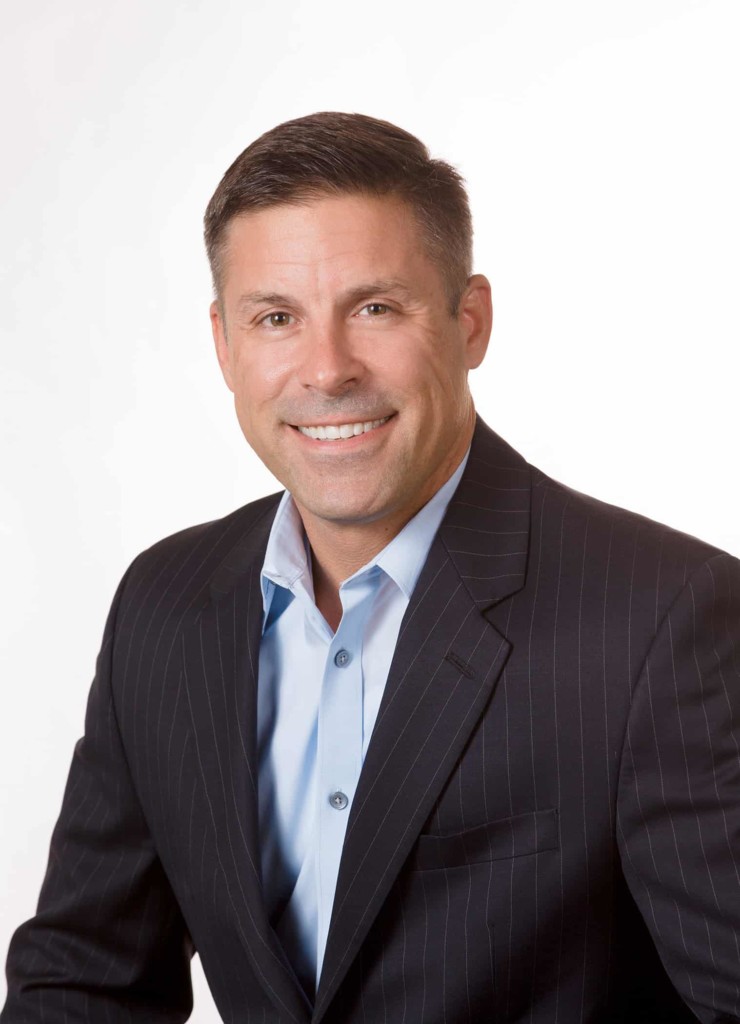Why Education Should Be Free

by Scott Hines, Co-Founder, President and COO, World Education University
For most, the single greatest barrier to accessing higher education is cost. In the last decade, tuition has skyrocketed across the United States. Crippling student loan debt in America has now surpassed a staggering $1 trillion. Many students find the return on investment just isn’t there and they’re walking away from college without graduating, disenfranchised and deeply in debt. The international community is even less likely to attend college, with less than five percent of the world’s population ever achieving post-secondary education of any kind.
Last year, I attended a global education conference hosted by Goldman Sachs at Stanford University. The auditorium was filled with 500 dark suits, hoping to capitalize on the hottest investment opportunities in the education space. The moderator of a panel asked, by a show of hands, who in the room thought college education should be “free”. Curtis Pickering, Chairman and CEO of WEU, and I exuberantly shot up our hands. We thought to ourselves, who wouldn’t want to deliver free education to the masses? Think of the good that could be done educating everyone. As we looked around, not another hand in the crowd of suits was raised. We were alone in our belief, and dumbfounded. One of the panelists, indignant at the very question, responded sarcastically “Free? Then everyone would have a college degree.” The room rumbled with quiet laughter – how preposterous a thought!
Classism has been around for centuries. There isn’t much incentive for the wealthy to lift the rest of society; and it is intriguing to see how our educational systems sustain the cycle of classism. Though charitable giving is part of elitist culture, it is rarely done with sacrifice. As the Mayor of an affluent community, I attend numerous charity galas. I watch as we, the elite, write our checks, take pride in our philanthropy and jump to congratulate one another on our convenient generosity.
But level the playing field for everyone? Oh no, that takes things too far. The elite privately reason that station and class are part of the fabric of society. The reality is that concepts of social justice are terrifying to the wealthy because they falsely perceive these precepts inherently usher in liberal edicts of wealth redistribution.
No wonder the private sector has been reluctant to invest in free education models and the open source movement. To the elite, education preserves their place in society. So to open the floodgates and offer quality free education to everyone is a deeply perceived personal threat – though it is greatly misunderstood.
The good news is that this paradigm is slowly changing now that technology yields profitable business models for delivering low cost and even free education to the general population. Companies like Coursera, Udacity and our own WEU are shifting the conversation and disrupting the cherished belief that higher education is meant only for the elite – and investors are coming around. A new breed of social entrepreneurs are proving that social impact and profit need not be mutually exclusive concepts.
However profitable companies like ours may become, I believe that educating the populace brings more than just a return on investment. Society as a whole, to include the elite and wealthy, benefits when its citizens are educated. Here’s why:
Efficiencies in Human Capital are Realized. Unemployment and underemployment are terrible wastes of human capital. In most cases, those faced with a lack of viable work opportunities are often lacking skills, training or education. They become a drain on social welfare systems as financially non-contributing citizens. When society lacks a trained workforce, national economies become sluggish and stale. But when workers are trained and educated properly, economies flourish and grow. The GDP pie becomes larger and provides more opportunities for both the wealthy and the rest. Additionally, by opening the opportunity of higher education to all, we will likely discover the next Einstein or Edison sooner, perhaps in a small village, far away from the Ivy League.
An Educated World is a Healthier, Safer World. Educated people tend to make better lifestyle choices leading to greater wellness and health. As a result, the social welfare system is less burdened with disease and illness often associated with poverty. As a whole, mortality rates improve and the quality of life for entire generations are improved. The educated also tend to be less likely to choose violence as a means of resolving differences with others, both on a micro and macro level, which leads to a more peaceful and safer world for all.
The Advancement of Mankind. With education comes evolution of thought, behavior and lifestyle. Educated humans are no longer faced with daily survival and become free to focus their energies on improving themselves and the world around them. We also know that the educated tend to be more predisposed to humanitarianism, volunteerism and social entrepreneurship.
So, if democratizing education increases global prosperity by leveraging an educated human race, improves health and safety, and advances the collective thought and behavior of mankind, what other reason could be provided for subscribing to the status quo of a costly education system that shuts most citizens out?
I often hear people say that if one doesn’t pay for their education, they won’t appreciate it, work for it or ever complete a degree program. Rubbish.
I grew up in a low-income home. College was out of financial reach. But upon receiving an appointment to the U.S. Air Force Academy, a free college, my world suddenly expanded and the opportunities for a better life multiplied. It was the opportunity to receive an education that set my life on a different path. And I have never, not once, taken for granted the chance I got to study, learn and become an educated person. I’ve worked with underserved populations for most of my career, and my experience tells me that the gift of education is one of the most transformative and powerful tools we have to disrupt the cycle of poverty. To me, it is nothing less than a human right.
As I reflect back to that investor conference at Stanford, I wonder how different the response to the question of “whether or not college education should be free” would have been if the room were filled with the underserved citizens of our planet. Certainly every hand in the room would have lifted. But if the elite consider the fact that an educated world is a healthier, more peaceful and yes, more profitable world; their hands would have shot up too. Making education free makes good micro-economic and macro-economic sense. If done with sufficient scale, it makes the world better for us all. It is also the right thing to do.
World Education University or WEU, is an online University that offers tuition-free college degrees and courses to anyone in the world. The for-profit company leverages online monetization strategies to create a sustainable business model aimed at improving the socio-economic status of the world’s underserved populations.







Dan Briggs
Not sure I buy the conspiratorial wealthy thesis. Fees rise for two reasons, profit and labor Would greedy pensioners be part of your wealthy class- California alone has 450 billion dollars in unfounded pension liabilities. Flip public labor over to our social security system and the need for expensive higher education disappears.
Thank you developing the WEU I have been reading about these free education models and am rooting for their survival.
Joseph Hegarty
There is no such thing as free education. This is a fallacy. Education and training cost money. The infrastructure costs money, the personnel cost money, the materials cost money, to offset these costs "social entrepreneurs" may wish to cover these costs in a philanthropy sense, but the suggestion of investment presupposes return on investment (profit). None of this is free, but it can be made available at zero or reduced cost to the recipient of education, and I agree it should be done where possible.